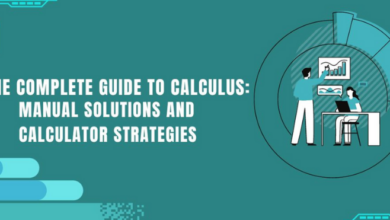
In this article, we shall look at what an IT engineer would need to learn to get their feet in the Data Science realm. But before that, a short primer on Data Science to set the context right. In the sections that follow, we shall try to explore the skills required for data science. We shall then focus on the skills in Mathematics that an IT engineer needs to scale up to have their feet firm in Data Science.
So, What Is Data Science
If you are an IT expert and still figuring out what Data Science is all about and thirsty for more, here is a little scoop on Data Science.
Data Science is everything to do about data that passes through and resides on the IT systems that you are so familiar with. It is a field that draws most of its core from multiple subjects.
It involves scientific processes and methods, mathematical algorithms, and extensive data infrastructure to extract valuable information for a business. This information is then used to arrive at insights that drive decisions at the highest levels of any business. In short, Data Science is the science about handling data, various types of data, and applying appropriate algorithms to extract useful information, no matter how big or how unstructured the data is.
In Data Science, of all the disciplines involved, Mathematics has the most weightage. Why do we say so, you wonder? Well, data is mostly about patterns at various resolutions, and pattern lends itself well to mathematics. In other words, Mathematics helps to generalize patterns, thus paving the way for the identification of multiple patterns, trends, and relationships within the data.
Data Science for an IT engineer?
Considering the demand and scope Data Science has attained, many IT engineers are aspiring to get into the job roles offered in the domain of Data Science. So, before you take up the courses offered in the domain of data science, let us look into a few prerequisites for learning data science.
How much math does an IT engineer need for practising modern-day Data Science is the question that we are trying to answer.
When you do simple research on the web, you will figure out that the three most important topics within Mathematics that are critical to a Data Scientist are
- Calculus
- Linear Algebra
- Probability and Statistics
We shall look deeper at each and give our final verdict on what you should focus on if you as an IT engineer have your eyes on Data Science as a career. Before that, we shall take a look at how much math you, as an IT engineer, probably already know.
The IT Engineers domain
The working domain of IT engineers involves computing and networking hardware. While designing such hardware consists of a bit of mathematics, most IT engineers would not be even remotely close to mathematics in their current roles.
Many IT engineers might come from a computer science background or have a science background in the academic journey. But this is nowhere close to using mathematics day in and out, which is what data science is mostly about, well, at least when it comes to the use of algorithms. Many in the IT engineering field come from non-science backgrounds with limited exposure to mathematics and pick up the necessary skills through professional courses which have hardly anything to do with mathematics.
So how much math does an IT engineer need to learn to get a good hold in Data Science? The answer isn’t as simple as it appears. Let’s take it one topic at a time.
-
Calculus
In Data Science, almost all equations are based on calculus. While it is good to know calculus, it is not an absolute necessity to be a guru in Calculus. In Data Science, it is essential to understand the principles of Calculus. You must understand how these principles impact your mathematical or statistical models in the real world.
-
Linear Algebra
Most of the mathematical models in Data Science are based on concepts borrowed from Linear Algebra. Linear Algebra is in use when you are performing something as simple as a dimensionality reduction. Linear Algebra is used in neural networks for representing and processing algorithms.
Although Linear Algebra is fundamental to Data Science, it is unlikely that you would be required to write code that implements core Linear Algebra operations. It will suffice you to be aware of Linear Algebra principles and not require you to break your head on complex Linear Algebra problems.
-
Probability and Statistics
Probability and Statistics are probably the most important of all the topics you should be well aware of as a data science practitioner. You would have to have strong foundational skills in Probability and Statistics to be able to do well enough in the field of Data Science. However, a time-consuming affair investing in learning Probability and Statistics will take you a long way in Data Science.
Other Mathematics topics/concepts that you should be aware of are
Discrete Math
Discrete Math is fundamental to the working of computational systems, and today’s data science is done on computational systems. Discrete math covers topics that include the below.
- Sets, subsets
- Combinatorics
- Proof techniques like proving by induction or contradiction
- Inductive, Propositional, and deductive logic
- Data Structures like stacks, queues, graphs, trees
Graph Theory
Graph Theory is the study of relationships. A very notable area where graph theory is put to use is in Social Media analytics. Another domain is route planning in geospatial analytics.
Graph Theory renders itself one of the most valuable tools for real-world problem resolution, as many real-world problems are based on multiple relationships among several entities.
Operations Research
Operations Research is a topic that deals with the optimization of resources with applications in the real world. Operations research augments decision-making and helps in selecting strategies based on optimal utilization and favourable outcomes.
The logical inference to take away from the discussion above is that it should typically be easy to grasp mathematical concepts for an IT engineer. While it is unnecessary to be good at math topics like Linear Algebra, Calculus, Graph Theory, and Discrete Mathematics, it will be good to dust off some books on the above topics and complete a refresher. On the other hand, Probability and Statistics is a vital topic, and it will augur well for you to master this topic on your way to solidifying your place in the Data Science domain.
Learning these prerequisites would also make it easy to master Data Science.
Conclusion
Suppose you are an IT engineer with an educational background in computer science. In that case, you will need to brush up on your mathematics skills in Linear Algebra, Calculus, Graph Theory, and Discrete Mathematics.
You would need to spend a considerable amount of time getting up to speed with Probability and Statistics and achieving a level of mastery to be a thorough Data Science practitioner.





